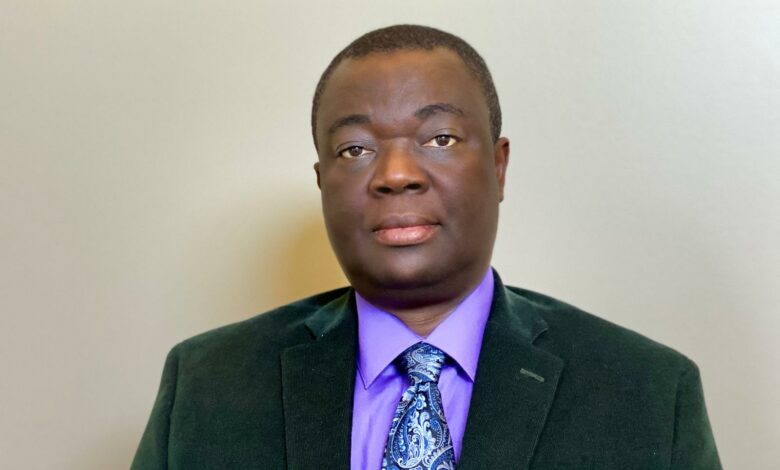USAID’s Withdrawal: A Looming Developmental Crisis for Ghana and Beyond

By Dr. Faith Ababio-Twi
The possible withdrawal of the United States Agency for International Development (USAID) from global operations presents a dire situation for many developing nations, particularly Ghana. For decades, USAID has played a key role in vital sectors such as agriculture, economic growth, human rights, democracy, global health, and women’s empowerment. Their contributions to water and sanitation projects have been crucial, making them a major provider of clean drinking water in Ghana and other African nations such as Gambia, Senegal, Togo, Nigeria, Kenya, and Ethiopia.
If USAID withdraws, the impact will be severe, creating economic, social, and security challenges that will affect millions of people.
USAID’s Crucial Contributions to Ghana and Other Nations
USAID’s presence in Ghana and across Africa has been transformational. Through various humanitarian interventions, they have provided essential services that improve livelihoods, particularly in times of crisis. In periods of drought, USAID ensures food security by supporting farmers with modern techniques, irrigation projects, and improved seeds. Their work in economic development provides funding for small businesses, empowering young entrepreneurs and women.
In governance and democracy, USAID has helped strengthen institutions, promote free and fair elections, and improve human rights protections. Their role in women’s empowerment has been significant, with programs such as the Women Development Bank—introduced by President John Dramani Mahama and Vice President Professor Jane Naana Opoku-Agyemang—providing financial opportunities for women to grow businesses and improve their lives.
Water and sanitation have also been key areas of focus. USAID has funded borehole projects and standpipe water systems in remote areas, helping communities access clean drinking water. They have also contributed to sanitation improvements by building drainage systems, latrines (KVIPS), and providing mosquito nets and spraying programs to control malaria.
The Devastating Consequences of USAID’s Withdrawal
If USAID withdraws its support, Ghana will face a major crisis, along with other developing nations such as Liberia, Sierra Leone, Malawi, Uganda, and South Sudan. The absence of USAID funding will leave governments struggling to fill the financial gap, resulting in widespread hardship.
1. Food Security and Agricultural Decline
Without USAID-backed agricultural programs, farmers will lose access to improved seeds, modern irrigation systems, and farming equipment. Food production will decline, leading to shortages and price hikes, which will affect both civilians and security agencies.
2. Water and Sanitation Crisis
Illegal mining (galamsey) has already contaminated Ghana’s rivers, reducing the availability of potable water. USAID’s borehole and water management projects have helped address this issue, but without their support, many communities will struggle to access clean drinking water. This will lead to increased cases of waterborne diseases such as cholera and typhoid.
3. Setback for Women’s Empowerment and Economic Development
Programs that support women’s financial independence, such as microfinance and entrepreneurship training, may collapse. This will widen the gender gap and limit economic opportunities for women, reversing years of progress in women’s empowerment.
4. Public Health and Disease Control Crisis
USAID funds major health initiatives such as malaria control, maternal healthcare, and HIV/AIDS prevention. Their withdrawal will result in a decline in these services, leading to increased disease outbreaks and higher mortality rates. The distribution of mosquito nets, sanitation projects, and spraying programs to reduce malaria infections will also suffer.
5. National Security and Political Instability
Economic hardship, food insecurity, and deteriorating living conditions could lead to social unrest. A weakened economy often results in increased crime rates and instability. Ghana’s security agencies may struggle to maintain order as financial constraints affect their operations.
6. Financial Deficit and Pressure on Government
Civil society organizations that rely on USAID funding will face major financial challenges. The Ghanaian government will also experience a budget deficit, making it difficult to maintain social services. Other affected countries, such as Mozambique, Chad, and Burkina Faso, will face similar economic and governance crises.
How Ghana’s Government Can Respond to the Crisis
Ghana cannot afford to lose the critical support USAID provides. If the withdrawal becomes a reality, the government must take immediate steps to address the challenges. Some possible solutions include:
1. Seeking Alternative Development Partners
The government must engage other international development organizations, such as the European Union (EU), African Development Bank (AfDB), and the United Nations Development Programme (UNDP), to secure funding for critical sectors.
2. Encouraging Private Sector Investment
The private sector must be encouraged to invest in agriculture, water, health, and sanitation projects. Local businesses and multinational corporations operating in Ghana should be incentivized to contribute to development initiatives.
3. Expanding Government Budget Allocation
The government must increase funding for essential sectors, including agriculture, water and sanitation, healthcare, and women’s empowerment. This may require restructuring national priorities to ensure adequate resources are allocated to these areas.
4. Strengthening Local Development Initiatives
Communities should be empowered to take charge of local development projects. Government agencies can support grassroots organizations with microfinancing, training, and infrastructure support to continue the work previously funded by USAID.
5. Environmental Protection Policies to Safeguard Water Resources
To combat the water crisis, the government must enforce strict measures against illegal mining (galamsey) and invest in alternative water conservation projects. Protecting Ghana’s natural water sources will ensure sustainable access to clean drinking water.
6. Expanding Agricultural Support Through National Programs
The government should boost agricultural production by providing subsidies to farmers, investing in irrigation systems, and supporting research in modern farming techniques. This will help maintain food security despite the absence of USAID support.
Conclusion
The potential withdrawal of USAID will have devastating consequences for Ghana and many other developing nations. From food security to healthcare, water management to democracy, the absence of USAID will create challenges that could take years to recover from. The Ghanaian government must act swiftly to secure alternative funding, encourage private sector investment, and implement long-term policies to sustain development. If proactive measures are not taken, Ghana and other affected nations could face a severe developmental crisis that threatens the well-being of millions.
The Author, Dr. Faith Ababio-Twi is a Financial Consultant and CEO, Fab Consult – USA





